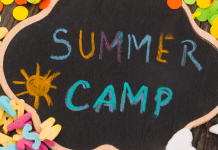Writer’s Note: This is the first in a series of articles for Waco Moms about dyslexia. It is more common than people think, yet it can feel overwhelming when dealing with it on your own. But you’re not on your own! Over the coming months, we will share how to identify it, ways to approach it, and what resources are available to help.
As a mom, we become students of our kids – recognizing their strengths and challenges often long before they themselves know it and before others become aware of it. If you notice your child is struggling with reading or writing, it’s important to explore the possibility of dyslexia.
You might be thinking, “But my kid doesn’t write their letters backward!” Dyslexia is so much more than backward letters, and it’s not all bad!
In this blog, we’re going to explore the signs of dyslexia and what steps you can take to advocate for your child if you suspect they may have it.
What is dyslexia?
Dyslexia is a common learning difference that affects the way the brain processes language. In fact, it is estimated that around 1 in 5 people have it in some form. That means in a classroom of 20 kids or an office of 20 people, at least 5 of them probably have dyslexia. You are not alone!

Dyslexia is often referred to as a disability. This designation can be helpful in receiving supports in formal settings such as educational institutions, employment, insurance, etc. And, unfortunately, those with this diagnosis are at a disadvantage in most school and societal settings because so few are designed with this group in mind.
Identifying dyslexia early can help your child receive the appropriate interventions and support, so they can thrive.
Common Signs
Dyslexia can present differently in each individual, but common signs are struggles with
- Relating sounds, letters, and words (Phonemic awareness)
- Sounding out words or recognizing familiar words (Decoding)
- Comprehending what is read
- Spelling
- Expressing ideas in writing
- Handwriting
- Recalling or pronouncing words
- Time management and organization
Dyslexia can manifest in different ways and severity levels, so if you notice your child having any of these struggles, getting an evaluation is the best first step.
Diagnosis
Rather than fearing a diagnosis, identifying dyslexia early can help your child receive the necessary support to overcome any challenges and achieve academic success. It also will help minimize the frustration and shame they experience as they progress in school.
Diagnosing dyslexia typically involves a comprehensive evaluation by a professional. Most public schools can provide the evaluation to all students living in their districts, including those who attend a private or charter school. Language and speech clinics or therapists can also be a resource for evaluation (we’ll cover local Waco resources in a future blog).
This evaluation may include:
- A review of your child’s medical and developmental history
- Assessment of your child’s reading and writing skills
- Cognitive and language testing
- Observation of your child’s behavior and performance in academic tasks
You’ll want to pull together a few documents such as:
- Most recent report cards
- A sample of your child’s handwriting
- Dates of your child’s development (first walked, first words, birth weight, etc.)
- Recent pediatrician record (height, weight, etc.)
If your child is diagnosed with dyslexia, it’s important to understand that this does not mean they are less intelligent or less capable than their peers. This is a specific learning difference that affects the way the brain processes language, and with appropriate support, children who are dyslexic can achieve academic success.
Advantages of Dyslexia
While dyslexia can cause challenges with reading, writing, and spelling, there are also some positive signs. Some of these positive traits may include:
- Strong problem-solving skills: People with dyslexia often have excellent problem-solving skills, as they have had to develop alternative strategies to navigate challenges with reading and writing.
- Creative thinking: Dyslexia can be associated with a tendency towards creative thinking and an ability to approach problems in unique ways.
- Strong verbal skills: People with dyslexia may have strong verbal skills, including good vocabulary, and an ability to express themselves clearly and eloquently.
- Strong social skills: Dyslexia can also be associated with strong social skills, such as an ability to connect with others and a good sense of humor.
It’s important to recognize that dyslexia is not solely a deficit or disability, and that individuals with dyslexia can have unique strengths and talents.
Some well-known people with dyslexia are:
- Steven Spielberg, film director and producer
- Richard Branson, business magnate and founder of the Virgin Group
- Henry Winkler, actor, comedian, and director
- Albert Einstein, theoretical physicist
- Walt Disney, animator and founder of The Walt Disney Company
- Pablo Picasso, painter and sculptor
Being dyslexic does not have to limit your child’s potential – it might actually be the differentiator that leads to their success. Appropriate interventions and support equip them with the tools to take advantage of these natural abilities, gain confidence in themselves, and manage potential challenges.
















